In Who We’re Reading When We’re Reading Murakami, author and translator David Karashima examines the emergence of Haruki Murakami as a global literary phenomenon, bringing together an incredible amount of information surrounding this towering figure of contemporary Japanese literature—including a conversation with the man himself—and putting his eye for detail to excellent use as he seeks to uncover everything that went into the establishment of the “Murakami industry” in the 1980s and 1990s. Through this meticulous work—first published in Japanese in 2018 and now in English by Soft Skull Press—Karashima sheds light on the mysteries of Murakami’s translation into English (including an answer as to why, for example, dozens of pages were cut from the published translation of Hard-Boiled Wonderland and the End of the World) and demonstrates the extent to which the process of bringing an author from one language to another involves countless decisions and a small army of agents, publishers, editors, and—of course—translators.
In this interview, conducted by Editor-at-Large for Japan, David Boyd, Karashima discusses Murakami’s translators, a potential re-translation of Hard-Boiled Wonderland and the End of the World, and how Who We’re Reading When We’re Reading Murakami found its way into the English language.
David Boyd (DB): In your book, we meet all the major players in Murakami’s orbit, but it’s clear that the stars of your story are the translator Alfred Birnbaum and the editor Elmer Luke. Why did you choose to focus on them?
David Karashima (DK): In my mind, at least, the individuals that take center stage in the book are Birnbaum, Luke, and Jay Rubin, although I do feel that all of the dozens of people who speak in the book have important episodes to relate. There are perhaps two main reasons that Alfred Birnbaum and Elmer Luke stand out in the book. First, I decided—at least for this first book—to focus on the years when Murakami’s work first began appearing in English (1985 to 1998), because this was a period that relatively little was known about; Birnbaum and Luke played important roles as trailblazers during this time. I remember a staff member of the Murakami Office telling me that these (especially the eighties and early nineties) were the “black box years” for them too. The story of the quarter-century since Murakami began to really break through—with the publication of The Wind-up Bird Chronicle—would have a different cast of central characters, although Jay Rubin would still be one of them. I also think that Birnbaum and Luke perhaps come to life in the book because it has been many years since they were involved in what Murakami himself calls the “Murakami industry” and are therefore in a position to reflect more openly on their experience. Many people—including Murakami himself—were kind enough to talk to me for the book, but most people’s responses (quite understandably) tended to be more measured.
DB: When people talk about Murakami’s translators, they usually focus on Birnbaum and Rubin. People describe them as opposites—Birnbaum the Bohemian and Rubin the Academic. In your book, you quote Murakami: “My style has changed from around 1990. My prose has become more meticulous, so it’s a problem if Alfred translates it freely. I want my work to be translated properly . . .” What importance do you assign to “the changing of the guard”? What does that moment mean to Murakami in translation?
DK: Birnbaum, Rubin, Philip Gabriel, and Ted Goossen are all terrific translators and I have a lot of admiration for the work that they do—not only translating Murakami, but introducing other Japanese (and in the case of Birnbaum also Burmese) writers to English readers, both as translators and editors. Murakami says that he has trouble distinguishing between the translations by his different English-language translators, but his American editors have suggested that each translator has his (and people have pointed out to me that, unlike with other languages, all of Murakami’s English-language translators have been men) own style. I imagine people compare Birnbaum and Rubin for two reasons. One, because they were the first two translators into English of Murakami’s book-length works (although Gabriel and Goossen both translated a few short stories early on). And, two, because they’ve translated a number of the same or similar works that many readers feel very attached to, such as Norwegian Wood and parts of The Wind-up Bird Chronicle. The “Birnbaum the Freestyling Bohemian versus Rubin the Meticulous Academic” dichotomy seems to have first captured people’s imaginations when Murakami tried to give credit to his translators in interviews he gave in the US and the idea has been explored by others since. It’s catchy, and there must be some truth to it, but I wonder if it doesn’t impede understanding of the complexity of each translator’s approach and the different contexts in which they were undertaking their translations. READ MORE…

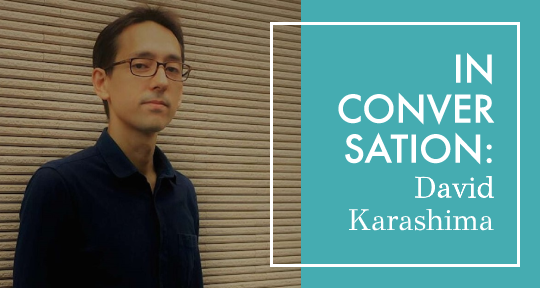
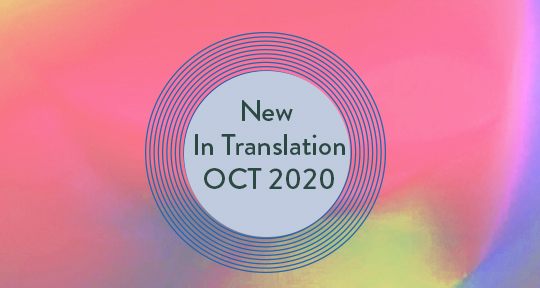



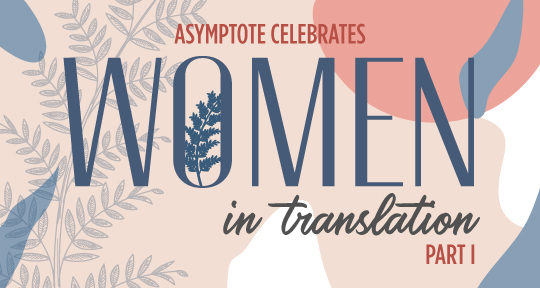

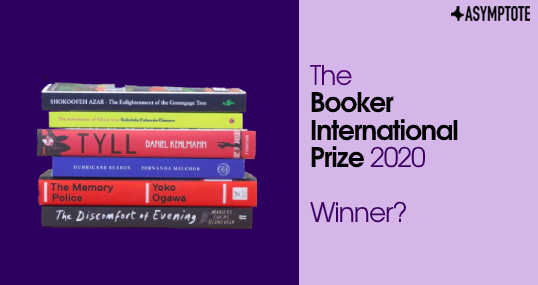




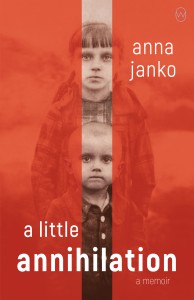
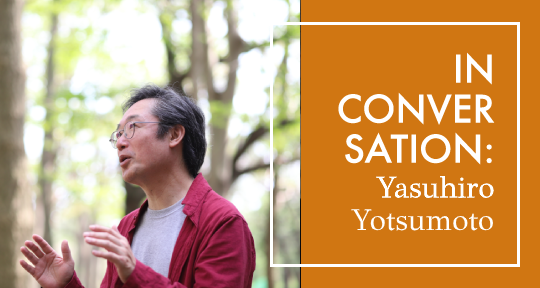
Announcing our August Book Club Selection: People From My Neighborhood by Hiromi Kawakami
The portrayal and analysis of collective experience makes this a text that truly meets our moment.
As we continue into the latter half of this increasingly surreal year, one finds the need for a little magic. Thus it is with a feeling of great timeliness that we present our Book Club selection for the month of August, the well-loved Hiromi Kawakami’s new fiction collection, People From My Neighborhood. In turns enigmatic and poignant, as puzzling as it is profound, Kawakami’s readily quiet, pondering work is devoted to the way our human patterns may be spliced through with intrigue, strangeness, and fantasy; amongst these intersections of normality and sublimity one finds a great and wandering beauty.
The Asymptote Book Club aspires to bring the best in translated fiction every month to readers around the world. You can sign up to receive next month’s selection on our website for as little as USD15 per book; once you’re a member, you can join the online discussion on our Facebook page!
People From My Neighbourhood by Hiromi Kawakami, translated from the Japanese by Ted Goossen, Granta, 2020
Like a box of chocolates, Hiromi Kawakami’s People From My Neighbourhood (translated from the Japanese by Ted Goossen) contains an assortment of bite-sized delights, each distinct yet related. This peculiar collection of flash fiction paints a portrait of exactly what the title suggests—the denizens of the narrator’s neighborhood—while striking a perfect balance between intriguing specificity and beguiling universality. The opening chapters introduce readers to each of the neighborhood’s curious inhabitants, while later chapters build upon the foundation, gradually erecting a universe of complex human relationships, rigorous social commentary, immense beauty, and more than a little magic.
Existing fans of Kawakami’s will surely recognize these common features of her award-winning body of work, while first-time readers will likely go searching for more. Goossen is better known as a translator of Murakami and editor of the English version of the Japanese literary magazine MONKEY: New Writing from Japan (formerly Monkey Business); ever committed to introducing Anglophone readers to non-canonical Japanese writers, he brings his flair for nonchalant magical realism to this winning new collaboration.
The first story, “The Secret,” introduces readers to the anonymous narrator and sets the tone for the collection. First presented as genderless, (we only find out later that she is female) she discovers an androgynous child, who turns out to be male, under a white blanket in a park. The child, wild and independent, comes home with her. Despite occasional disappearances, he keeps her company as she ages, all the while remaining a child. In this story, we receive her only concrete—but general—description of herself: “I’ve come to realize that he can’t be human after all, seeing how he’s stayed the same all these years. Humans change over time. I certainly have. I’ve aged and become grumpy. But I’ve come to love him, though I didn’t at first.” This one statement exemplifies many of the collection’s trademark characteristics and overarching themes: a version of time in which past, present, and eternity coexist, the supernatural, and the narrator’s fascinating method of characterization. READ MORE…
Contributor:- Lindsay Semel
; Language: - Japanese
; Place: - Japan
; Writer: - Hiromi Kawakami
; Tags: - family
, - fantasy
, - Japanese literature
, - Magical Realism
, - social commentary
, - strangeness
, - Women Writers